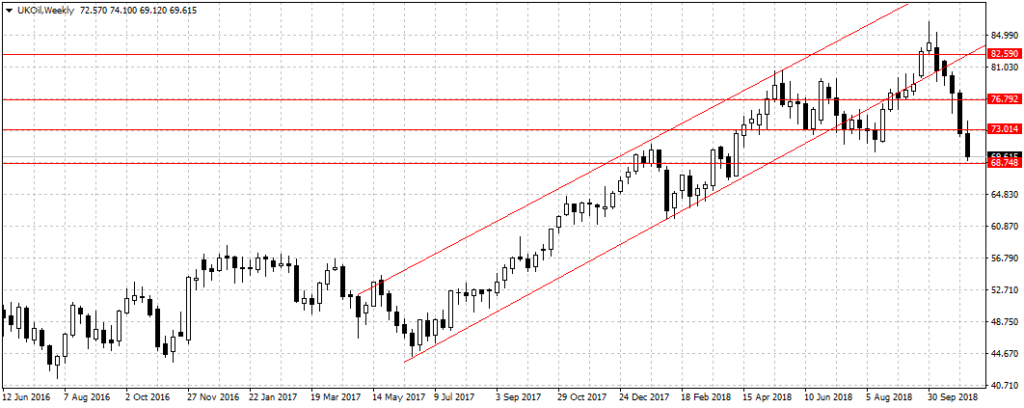- OPEC Plans Another Production Cut
Saudi Arabia on Sunday announced plans to reduce oil supply by 500,000 barrels per day in December, following the drop in global oil prices despite U.S.-Iran sanctions.
While Khalid al-Falih, Saudi Arabia’s energy minister, attributed the cut to the projected 0.5 percent drop in global oil demands in December, experts believe it has more to do with the waivers given to Iranian oil buyers by the US.
The prospect of having more global supplies than previously anticipated by global oil investors plunged global oil below $70 a barrel on Friday to $69.61.

Therefore, the low oil prices, according to two undisclosed sources by Reuters, are forcing Saudi Arabia to discuss a proposal that will see OPEC and non-OPEC producers cut oil production by 1 million barrels per day in 2019.
“I’ll tell you a piece of news which is (that) December nominations are 500,000 barrels less than November. So we are seeing a tapering off part of it is year end, part of it is maintenance…. so we will be shipping less in December than we are in November,” Falih told reporters in Abu Dhabi ahead of a joint OPEC, non-OPEC market monitoring committee meeting.
However, Russia, who was key in helping OPEC rebalance global oil market between 2016 to 2018, doesn’t think global oil market will experience excessive supply in 2019.
According to Alexander Novak, Russian Energy Minister, the oversupply projected by most analysts for 2019 would be seasonally driven and could rebalance by mid-2019 or even see demand exceeding supply later in the year. Therefore, Russia is not seeing a viable reason for an additional production cut yet.
OPEC and Non-OPEC will be meeting in Vienna on December 6-7 to decide output policy for 2019.
Falih, who did not rule out possible oil cut in 2019, also said he would prefer a year with “minimum interventions.”
“I think ideally we don’t like to cut. Ideally, we like to keep the market … liberally supplied and comfortable. We will only cut if we see a persistent glut emerging and quite frankly we are seeing some signs of this coming out of the US, we have not seen the signs globally,” he told reporters.
Brent crude oil, against which Nigerian oil is measured, lost about 3.6 percent last week to bring its quarterly lost to more than 15 percent.

 Forex2 weeks ago
Forex2 weeks ago


 Naira2 weeks ago
Naira2 weeks ago
 Billionaire Watch2 weeks ago
Billionaire Watch2 weeks ago




 Naira2 weeks ago
Naira2 weeks ago




 Naira2 weeks ago
Naira2 weeks ago




 Naira4 weeks ago
Naira4 weeks ago


 Naira6 days ago
Naira6 days ago
 Banking Sector4 weeks ago
Banking Sector4 weeks ago



















